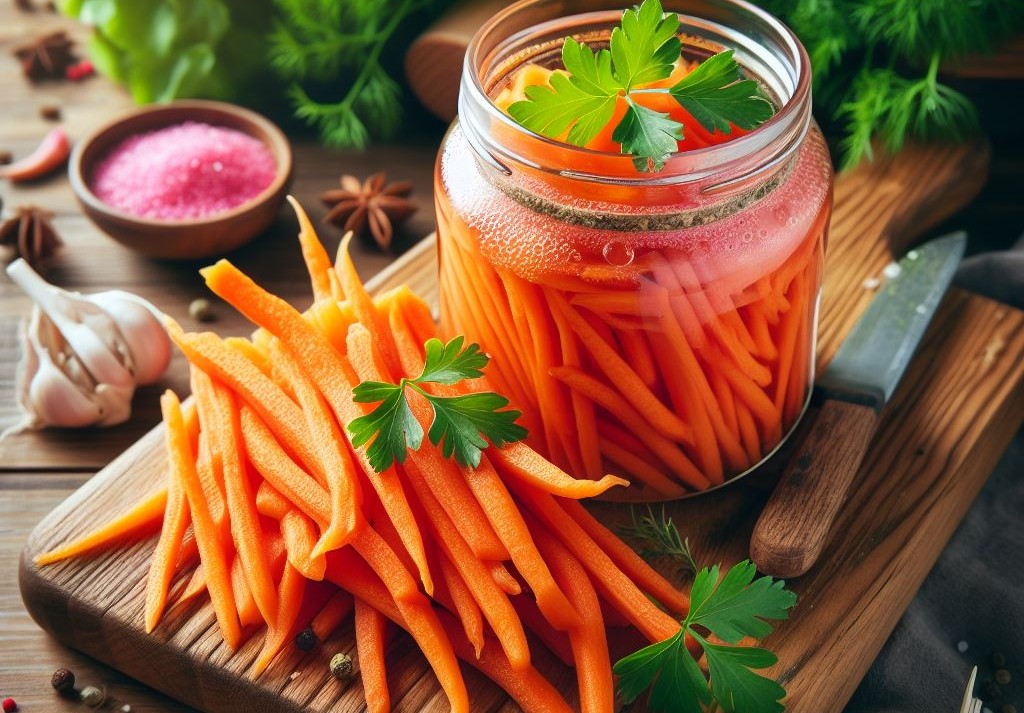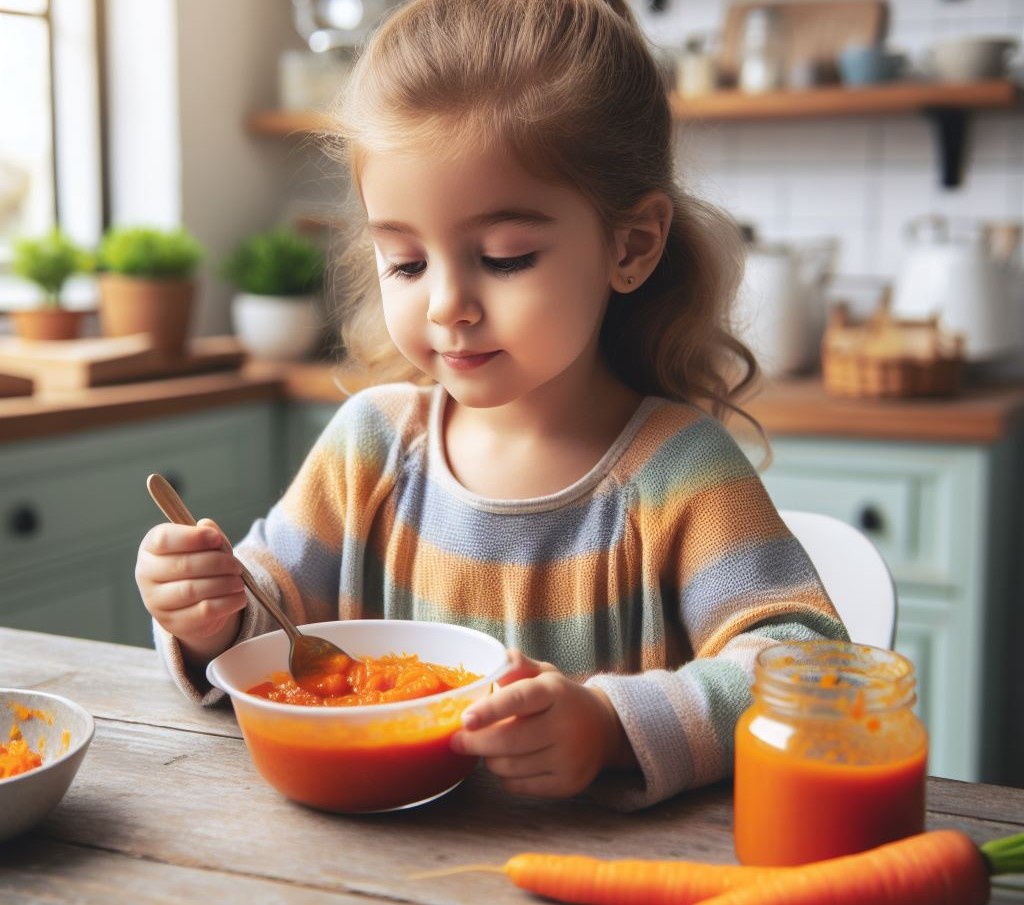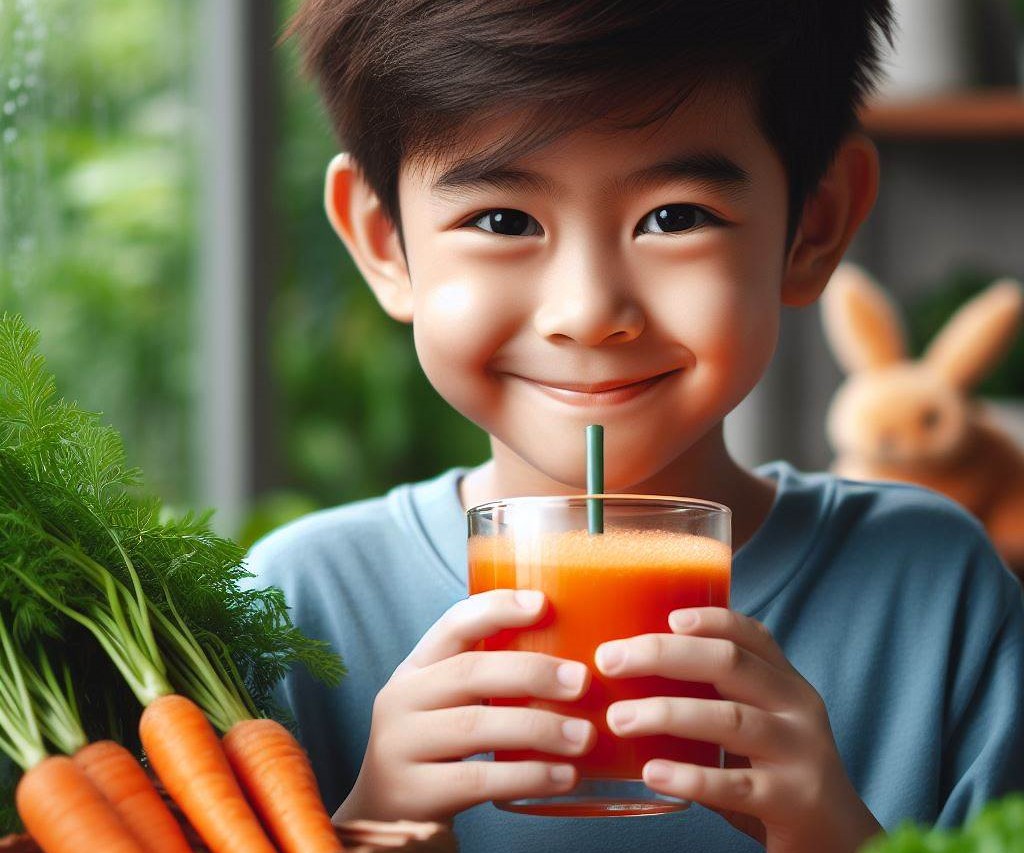Fermented carrots may not be the first thing that comes to mind when considering healthy foods for kids, but they are packed with benefits that make them a valuable addition to your child’s diet.
In this article, we will explore the world of fermented carrots, from their production process to the numerous health advantages they offer. We will delve into why fermented carrots are a powerhouse for digestive health, nutrient absorption, immune system strength, and even mood and behavior improvement in children.
We will provide practical tips for preparing and introducing fermented carrots to kids, as well as highlight potential risks and side effects to be mindful of. So, if you’re looking for a delicious and nutritious way to enhance your child’s diet, read on to discover the wonders of fermented carrots that your kids will love.
Key Takeaways:
- Fermented carrots are a delicious and nutritious addition to your child’s diet that can be easily prepared at home.
- Introducing fermented carrots to your child’s diet can have numerous benefits, such as boosting digestive health, increasing nutrient absorption, and strengthening the immune system.
- When introducing fermented carrots to kids, start with small amounts, mix them with other foods, and involve them in the preparation process to make it more fun and appealing.
What Are Fermented Carrots?
Fermented carrots are a traditional vegetable ferment that involves submerging carrots in a brine solution containing sea salt, creating an anaerobic environment where beneficial bacteria thrive, promoting gut health and providing probiotic benefits.
The process of fermenting carrots not only enhances their flavor but also enriches their nutritional profile. Through the action of lactic acid bacteria, either naturally present on the carrots or introduced through the brine, fermentation brings about a conversion of sugars into lactic acid, resulting in a tangy, crisp end product. This process also increases the bioavailability of nutrients, such as vitamins, minerals, and antioxidants, making them more easily absorbed and utilized by the body.
How Are Fermented Carrots Made?
.jpg)
Fermented carrots are made by placing fresh carrot sticks or slices in a clean jar, covering them with a brine made of sea salt and warm water, and allowing them to ferment at room temperature, often flavored with garlic or other spices for added depth of flavor.
Now, to start the process of making fermented carrots, you will need a few essential tools and ingredients.
- First, gather your fermentation tools, such as a Pickle Pipe and a Fido Jar, to create an anaerobic environment for the carrots to ferment.
- For the brine, you’ll need sea salt, warm water, and any additional spices you’d like to add for flavor, such as garlic, dill, or ginger.
- Prepare the carrots by cutting them into sticks or slices of uniform size, ensuring they fit neatly into the jar.
- Once the carrots are ready, it’s time to mix the brine.
- In a separate container, dissolve the sea salt in warm water, stirring until completely dissolved.
- Then, allow the brine to cool to room temperature before using it to cover the carrots.
Why Should You Include Fermented Carrots in Your Child’s Diet?
.jpg)
Incorporating fermented carrots into your child’s diet can significantly contribute to their overall well-being, as these nutrient-dense vegetables are a probiotic powerhouse, promoting gut health and aiding in the development of a robust immune system.
These vibrant orange vegetables are not only packed with essential nutrients like vitamin A, vitamin K, and fiber, but their fermentation process also enhances their nutritional value by introducing beneficial bacteria that support a healthy gut flora.
By regularly consuming fermented carrots, children can experience improved digestion, a reduced risk of allergies, and strengthened immunity, setting a strong foundation for their overall health and well-being.
Boosts Digestive Health
Fermented carrots play a pivotal role in boosting digestive health, as the probiotics present in this traditional food contribute to the balance and well-being of the gut and digestive system in children.
The consumption of fermented carrots introduces a diverse range of beneficial bacteria into the gut, aiding in the breakdown of food, the absorption of nutrients, and the regulation of the immune system. These probiotics work to maintain a healthy microbial community in the digestive tract, which in turn can alleviate digestive issues such as constipation, diarrhea, and bloating.
The presence of probiotics from fermented carrots can aid in preventing and reducing the severity of common childhood digestive ailments, offering a natural and effective means of promoting optimal digestive health in children.
Increases Nutrient Absorption
Integrating nutrient-dense fermented carrots into a child’s diet enhances their nutrient absorption, ensuring that their growing bodies receive essential vitamins and minerals from real, simple, and traditional food sources.
These fermented carrots, packed with beneficial bacteria, play a crucial role in improving the bioavailability of nutrients such as vitamin A, vitamin K, and various minerals. The fermentation process not only enhances the digestibility of these carrots but also promotes the development of probiotics, which are known to support a healthy gut microbiome and overall immune function.
By incorporating fermented carrots into a child’s diet, parents can help maximize the absorption of nutrients, contributing to their little one’s optimal growth and well-being.
Strengthens the Immune System
The consumption of fermented carrots strengthens a child’s immune system, thanks to the beneficial probiotics that support immune function and overall health, providing children with a natural defense against common illnesses.
Probiotics found in fermented carrots play a crucial role in modulating the immune response, aiding in the development of a strong and resilient immune system in children. By promoting the growth of beneficial bacteria in the gut, these probiotics help to maintain a healthy balance in the microbiome, which is essential for immune function.
Along with supporting immunity, fermented carrots provide essential nutrients and antioxidants that contribute to a child’s overall well-being and health.
Improves Mood and Behavior
Incorporating fermented carrots into a child’s diet has the potential to positively impact their mood and behavior, as the link between a healthy gut and improved emotional well-being is increasingly recognized and supported by scientific research.
The digestive system, particularly the gut microbiome, plays a crucial role in influencing a child’s brain function and mood regulation. Fermented carrots, with their abundance of probiotics, can contribute to a balanced gut microbiota, which in turn can enhance the production of mood-stabilizing neurotransmitters such as serotonin and dopamine.
The interaction between the gut bacteria and the immune system is essential for fostering a healthy psychological state. By supporting the immune response and reducing inflammation, fermented carrots may help alleviate stress and anxiety in children, promoting a more positive and balanced emotional state.
What Are the Different Ways to Prepare Fermented Carrots for Kids?
There are various ways to prepare fermented carrots for kids, including serving them as fermented carrot sticks, pureeing them into a smooth and flavorful texture, or even creating a nutritious fermented carrot juice to incorporate into their everyday meals.
Fermented carrot sticks are a convenient option for snacking, and they pack a crunchy punch of probiotics that can support gut health in children. The pureed version of fermented carrots can be blended into sauces, soups, or used as a spread to incorporate its benefits into various dishes without compromising the taste.
Additionally, fermented carrot juice offers a refreshing way to sneak in the goodness of fermented carrots, providing a vitamin-rich beverage option for kids. By integrating these fermented carrot variations into children’s meals, parents can promote a balanced and nutritious diet while introducing the benefits of fermented foods at an early age.
Fermented Carrot Sticks

Fermented carrot sticks are a convenient and enjoyable way to introduce this nutritious food to kids, providing a crunchy and flavorful snack option that’s packed with gut-friendly probiotics.
Preparing fermented carrot sticks for kids is a simple process that starts with washing and peeling the carrots. Then, the carrots are cut into sticks and placed in a sterilized glass jar. Next, a brine solution made of water and salt is heated and allowed to cool before being poured over the carrots in the jar.
The jar is tightly sealed and left at room temperature for a few days to allow the fermentation process to occur. During this time, the probiotics develop, giving the carrot sticks their tangy flavor and enhancing their nutritional value.
Once the carrots have reached the desired level of fermentation, they can be stored in the refrigerator to slow down the process and keep them fresh for snacking. Kids will love the crisp texture and zesty taste of these homemade fermented carrot sticks, making them a fantastic and healthy treat.
Fermented Carrot Puree

Fermented carrot puree offers a versatile and nutrient-dense option for introducing the benefits of fermented carrots to children, creating a smooth and easily digestible texture suitable for various culinary applications.
Its vibrant orange color and sweet, earthy flavor make it an appealing addition to dishes, and it can be incorporated into soups, sauces, and dips. The fermentation process enhances the natural sweetness of the carrots while also promoting the growth of beneficial probiotics, which can support gut health in children.
The nutrient density of fermented carrot puree provides an excellent source of essential vitamins, such as vitamin A and beta-carotene, important for children’s growth and immune function. This puree can also be used to naturally sweeten baked goods and desserts, offering a healthier alternative to processed sugars.
Fermented Carrot Juice

Fermented carrot juice presents an innovative and healthful option for incorporating the benefits of fermented carrots into a child’s diet, offering a nutrient-dense and easily consumable form of this probiotic-rich food.
By fermenting the carrots, the natural sugars are broken down into beneficial bacteria, providing a tangy and refreshing beverage that kids are likely to enjoy. This process not only enhances the nutritional value of the carrots but also makes it more digestible for children.
The vibrant orange color of the juice is visually appealing and can encourage children to consume more vegetables without resistance. The unique flavor profile of fermented carrot juice can also introduce kids to new and exciting taste experiences, broadening their culinary preferences and promoting a diverse, nutrient-rich diet.
What Are Some Tips for Introducing Fermented Carrots to Kids?
Introducing fermented carrots to kids can be a rewarding experience, and incorporating some key tips such as starting with small amounts, mixing with other foods, and involving kids in the preparation process can make the transition smoother and more enjoyable.
Starting with small amounts of fermented carrots alongside familiar foods like sandwiches or wraps can help acclimate children to the new flavor and texture without overwhelming their taste buds. Involving kids in the preparation process, such as letting them help mix the carrots with other ingredients or choose the spices to use, can cultivate their interest and foster a sense of ownership over the dish.
Start with Small Amounts
When introducing fermented carrots to kids, it’s advisable to start with small amounts, gradually increasing the serving size to allow them to acclimate to the new taste and texture and build acceptance over time.
Children can be hesitant to try new foods, especially those with unfamiliar tastes and textures. By starting with small portions of fermented carrots, parents can ease their children into the experience, giving them time to adjust and grow accustomed to the unique flavors. This gradual approach can help prevent overwhelming their taste buds and make the introduction of fermented foods a more positive and successful experience for them.
Mix with Other Foods
Mixing fermented carrots with other familiar foods can ease the introduction process and increase acceptance, allowing kids to experience the benefits of fermented carrots while enjoying the flavors and textures they already enjoy.
For instance, blending pureed fermented carrots into:
- spaghetti sauce
- vegetable soups
- smoothies
- and even baked goods
can effectively mask the taste while providing a nutritious boost. Incorporating fermented carrots into bite-sized snacks like vegetable sticks with a tasty dip or layered in sandwiches can make them more appealing and accessible to children. By involving kids in the preparation process, such as by letting them add fermented carrots to their own pizzas or salads, they develop a sense of ownership and curiosity about trying new and wholesome foods.
Involve Kids in the Preparation Process
Involving kids in the preparation process of fermented carrots fosters a sense of ownership and curiosity, making them more receptive to trying the final product and developing a positive association with this nutritious food.
By participating in the preparation process, children are exposed to the ingredients and methods, which can ignite their interest in the science of fermentation and wholesome eating. Engaging them in choosing the carrots, washing them and seasoning them introduces decision-making and creativity, building essential life skills early on.
It creates an opportunity for family bonding and memorable experiences centered around food, leading to a healthier attitude towards eating and an appreciation for the effort put into meal preparation.
Are There Any Risks or Side Effects of Feeding Fermented Carrots to Kids?
While fermented carrots offer numerous health benefits, it’s essential to be mindful of potential risks and side effects, such as allergic reactions, digestive discomfort from excessive consumption, and the possibility of contamination or spoilage.
Young children, in particular, may be more susceptible to allergic reactions, so introducing fermented carrots into their diet should be done cautiously, and any signs of allergy should be closely monitored. Fermented foods can sometimes cause digestive discomfort, such as bloating or gas, especially if consumed in large quantities.
Contamination is another significant concern, as improper fermentation or storage can lead to harmful bacteria or mold growth. It’s crucial to ensure that the fermentation process is conducted in a clean environment and to store the fermented carrots properly to minimize the risk of contamination.
Allergic Reactions
Allergic reactions to fermented carrots can occur in some children, making it vital to monitor for any signs of allergy and seek medical advice if there are concerns about potential allergic responses.
Parents should be alert to symptoms such as hives, swelling, itching, or difficulty breathing, which could indicate an allergic reaction to fermented carrots. It’s important to remember that allergies can develop at any time, even if a child has previously consumed carrots without any issues.
Seeking guidance from a pediatrician or allergist can help determine the appropriate course of action and ensure the safety of the child’s diet.
Too Much Fermented Foods Can Cause Digestive Discomfort
Consuming excessive amounts of fermented foods like carrots can lead to digestive discomfort in some children, underscoring the need for moderation and mindful consumption to avoid potential adverse effects.
It’s essential to be aware of the potential impact of fermented foods on children’s digestive health. Excessive consumption of these foods can disrupt the natural balance of gut flora, leading to discomfort and irregularity. Therefore, it’s crucial for parents to introduce carrots and other fermented foods gradually and in moderation, while also ensuring a balanced diet that includes a variety of fibrous and nutrient-dense foods.
Possible Contamination or Spoilage
To ensure the safety of fermented carrots for kids, it’s crucial to be vigilant against possible contamination or spoilage and maintain proper storage and hygiene practices to minimize the risk of adverse effects on children’s health.
When fermenting carrots for kids, it’s important to remember that the presence of harmful bacteria or mold can lead to foodborne illnesses. By following hygiene practices and utilizing sanitized equipment, you can reduce the risk of contamination during the fermentation process.
Storing the fermented carrots in airtight containers in the refrigerator will prolong their shelf life and maintain their quality. It’s also crucial to ensure that the carrots are fully submerged in the brine to create an anaerobic environment that inhibits the growth of undesirable microorganisms.
Final Thoughts and Recommendations
In the realm of providing wholesome nutrition for kids, fermented carrots stand as a valuable addition, offering a gateway to holistic health and well-being and serving as a testament to the nourishing potential of real, simple, and traditional foods in a child’s dietary journey.
They are not only a source of essential vitamins and minerals but also contribute to the diversification of the child’s palate, promoting a taste for diverse flavors and textures. Fermented carrots can be a fantastic way to introduce beneficial probiotics to a child’s diet, supporting their gut health and overall immunity.
The natural tangy flavor of fermented carrots can make them an appealing and enjoyable snack for children, helping to develop a positive relationship with nutritious foods from a young age.
Frequently Asked Questions
What are fermented carrots?
Fermented carrots are carrots that have been pickled in a brine solution using beneficial bacteria and yeast. This process results in a tangy and slightly sour flavor, similar to pickles.
Why should I give my kids fermented carrots?
Fermented carrots are a great way to introduce probiotics into your child’s diet. Probiotics are beneficial bacteria that can improve gut health and boost the immune system.
How can I make fermented carrots that my kids will love?
To make fermented carrots, you will need sliced or grated carrots, salt, water, and a jar. Simply mix the carrots with the salt and water in the jar, cover and leave at room temperature for a few days until they are pickled.
Do fermented carrots have any health benefits?
Yes, fermented carrots contain probiotics, which can help improve digestion, boost the immune system, and even reduce inflammation in the body. They are also a good source of vitamins and minerals.
Are fermented carrots safe for kids to eat?
Yes, fermented carrots are safe for kids to eat. In fact, fermented foods have been consumed for centuries and are considered a staple in many cultures. As long as the carrots are properly prepared and stored, they are perfectly safe for kids.
What are some other ways to incorporate fermented carrots into my child’s diet?
Besides eating fermented carrots as a snack, you can also add them to sandwiches, wraps, salads, or even mix them into sauces and dips. The tangy flavor of fermented carrots can add a unique twist to any dish and make it more appealing to kids.

